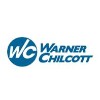
Flushing Reduction Associated With Nitrates
Menopausal Hot FlashesA randomized, double-blinded, placebo-controlled trial of uninterrupted transdermal nitrate therapy in 140 peri- or postmenopausal women who have frequent hot flashes. Women will be randomly assigned to uninterrupted use of transdermal nitrate therapy (participant directed dose-escalation of 0.2 to 0.6 mg/hr) or identical-appearing placebo patches for 12 weeks.

Clinical Trial Assessing Toxicity and Efficacy of MF101 for Hot Flashes
Hot FlashesThe researchers propose a Phase II randomized, double-blind, placebo-controlled trial of 180 healthy postmenopausal women experiencing at least 5 hot flashes per day or 35 hot flashes per week. Women will be randomized to one of three arms: 4.5 grams/day (dry weight of extract) of MF101, 9.0 grams/day (dry weight of extract) of MF101 or placebo for 12 weeks.

Study of Gabapentin Extended Release (G-ER) in the Treatment of Vasomotor (Hot Flashes/Hot Flushes)...
Hot FlashesDepomed's Gabapentin Extended Release is an investigational, extended release formulation of gabapentin that is being studied for the treatment of hot flashes in postmenopausal women.

Sulpiride Versus Placebo for Reducting Hot Flushes During Climacteric
Menopausal SyndromeHot FlashesIntroduction: Estrogen hormonal therapy associated or not with progestagen is the standard therapy for the treatment of hot flushes. However some women are not candidates for hormone replacement therapy for medical reasons or for choice. Main goal: Reducing the number of hot flushes per week Materials and Methods: A double-blind sulpiride versus placebo that includes selected randomized patients which show symptoms of menopause. The study will be conducted at HC Porto Alegre (Brazil) for 8 weeks of intervention. The expected result is a significant reduction in the number of hot flushes/day evaluated by daily questionnaires

MsFLASH-04: Pilot Trial: Telephone Behavioral Therapy for Menopause-related Sleep Disturbance
Hot FlashesMenopause2 moreSelf-reported sleep complaints are common in peri- and postmenopausal women and have been identified as a key symptom of the menopausal transition. The MsFLASH study, A Pilot Trial of Telephone-Based Cognitive-Behavioral Therapy for Midlife Women with Menopause-related Sleep Disturbance, is a randomized, single-blind, placebo-controlled, two arm clinical trial. The target population will include women in general good health, aged 40-65 years, who report symptoms of insomnia (trouble sleeping) and who are bothered by hot flashes. We plan to enroll 100 women from Seattle, Washington and surrounding areas into the trial. Half of the women will be randomly assigned to receive the behavioral intervention and half to receive the behavioral control. The intervention arm participants will receive 6 sessions of a telephone-based, cognitive-behavioral therapy intervention for insomnia (CBT-I), based on state-of-the-art methods and specifically targeted to women with menopause-related sleep disturbance (CBT-I). The control arm participants will receive telephone-based Menopause Education Control (MEC) that includes elements of sleep hygiene. Assessments for both groups will be collected at baseline (pre-randomization), 8-week post-randomization, and 6-month post-randomization. The inclusion/exclusion criteria are designed to target broadly those midlife women who have menopause-related sleep disturbance and also report being bothered by vasomotor symptoms. This target population defines the clinical population seeking treatment for relief of menopause-related sleep problems. Exclusion criteria are kept minimal and intended only to exclude women with significant medical problems likely to account for their sleep problems (instead of menopause), or likely to interfere with their ability to participate in the intervention. We include women taking hormone therapy or other medication who meet these criteria because they are part of the population seeking clinical care for relief of sleep disturbances. Our primary objective is to develop an intervention that is generalizable to the greatest number of women and maximally translatable into real-world primary care practice.

Mindfulness-Based Stress Reduction for Hot Flashes
Vasomotor SymptomsThis is a study to determine if participation in a mindfulness-based stress reduction program is feasible for women experiencing five or more hot flashes/day, and whether it affects either the frequency and/or intensity of their hot flashes, or the degree of bother they experience from them

Neuropeptide Treatment for Hot Flushes During the Menopause
Menopausal FlushingPlacebo-controlled, double-blinded, cross-over clinical trial of a new investigational product

Hormone Replacement Therapy for Use in Postmenopausal Women for Relief of Hot Flushes and Urogenital...
Hormone Replacement TherapyMulticenter, double-blind, controlled, parallel group, randomized study to compare the clinical benefit of Estradiol acetate tablets, estradiol tablets and conjugated equine estrogen tablets, each administered orally, once daily, to postmenopausal women.

Pilot Study of Stellate Ganglion Injection to Provide Relief From Hot Flushes
Hot FlashesMenopauseThis study is being done to determine whether stellate ganglion injection with local anesthetic (the study procedure) can reduce the number and severity of hot flashes in women who have hot flashes. Hot flashes can have a significant impact on daily living, disrupt sleep, and lead to fatigue and irritability during the day. Hot flashes are the most common reason that women seek hormonal therapy. However, for many women, including breast cancer survivors, this is rarely an option, and these women seek alternatives to hormonal therapy to treat hot flashes. The study procedure has been in clinical use for more than fifty years in treating certain disease states and chronic pain. The study procedure has not been used to relieve hot flashes and the use of the study procedure with local anesthetic for the reduction of hot flushes is considered experimental.

Acupuncture in Treating Hot Flashes in Patients With Prostate Cancer
FatigueHot Flashes1 moreRATIONALE: Acupuncture may help relieve hot flashes in patients with prostate cancer. PURPOSE: This clinical trial is studying how well acupuncture works in treating hot flashes in patients with prostate cancer who are undergoing androgen deprivation.
